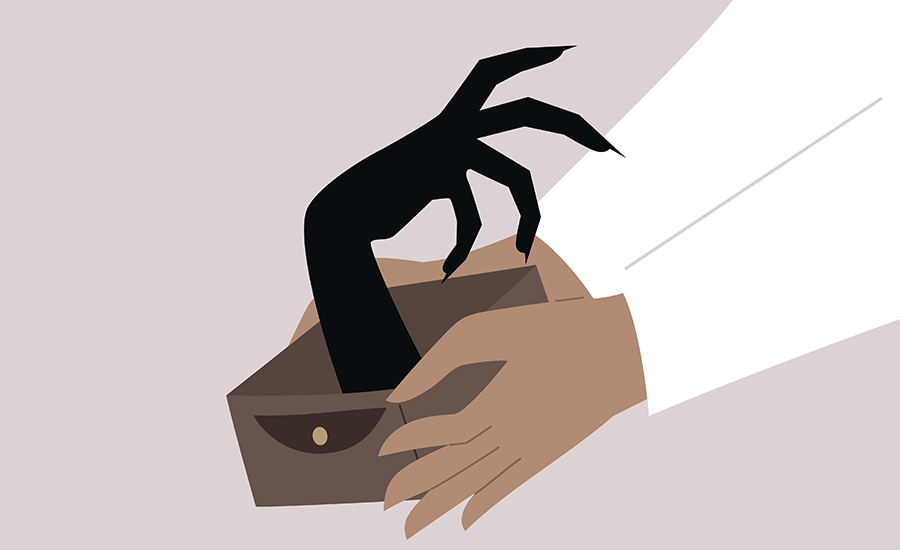Unlike Bela Lugosi’s Dracula costume, old debts don’t always stay buried. Sometimes, they come back to life in the form of zombie debt. And, if you’ve ever been contacted by a debt collector about a bill you don’t recognize (or one you thought was long gone), you may have encountered it.
What Is Zombie Debt?
Zombie debt is an old financial obligation that resurfaces after you thought it was settled, written off, or forgotten. It can include:
- Debts that were already paid off
- Debts that were discharged in bankruptcy
- Debts past the statute of limitations (too old for collectors to legally sue over)
- Mistaken or stolen identity debts (someone else’s bill linked to your name)
Debt collectors sometimes buy old debts for pennies on the dollar and try to collect—even when the debts are no longer legally enforceable. These companies play a numbers game: they only need a few people to pay to turn a profit. To reach that goal, some use unscrupulous tactics, including harassing or threatening phone calls.
Is Zombie Debt Legal?
The debt itself may be real, but a collector’s ability to enforce it depends on the circumstances. The statute of limitations on most debts—including credit card debt—is generally six years from the last payment made or when the account becomes delinquent. Once the statute of limitations runs out, collectors can’t take you to court over it. However, they can still try to contact you and ask for payment.
But here’s the tricky part: if you make even a small payment or agree in writing that you owe the debt, you could restart the statute of limitations. That means the collector may once again have the right to sue you for the full balance.
🚩 Red Flag Alert: If a debt collector pressures you to pay immediately via wire transfer or prepaid cards, it is a scam. Don’t share personal information and don’t send money. Report the attempt to the Consumer Financial Protection Bureau, the Federal Trade Commission, or the Oregon Department of Justice.
What to Do if a Zombie Debt Comes Calling
If you’re ever contacted about a debt you don’t recognize—or one that seems suspicious—take these steps:
1. Don’t pay right away.
Do your research before agreeing to anything, and don’t make a payment before verifying the validity of the debt. If you make a partial payment or even agree to pay, you may “revive” the old debt and restart the statute of limitations.
2. Request written verification.
Under federal law, collectors must provide details about the debt, including the name of the original creditor, the amount owed, and how to dispute the debt. And, while you might start the process by phone, it’s best to follow up with a written request so you have an official record. Keep your letter concise and professional, and include your contact information, the debt collector’s information, and the account number they provided. In your letter, ask for:
- The original creditor’s name and address
- A breakdown of the debt
You can also request the date the account became delinquent and proof that the collector has the right to collect. Collectors aren’t required by law to provide these details, but it doesn’t hurt to ask. Be sure to sign and date the letter and keep a copy for your records. This documentation can protect you if questions arise later.
3. Check your records.
Once you receive the information from the debt collector, review it carefully and compare it with your records and your current credit report. First and foremost, make sure the debt is yours. An unfamiliar debt may be a sign of identity theft. If the debt is yours, check if you’ve already paid the debt, discharged it in bankruptcy, or if it’s past the statute of limitations in Oregon. If anything seems incorrect or the debt is unfamiliar, formally dispute the debt in writing within 30 days.
4. Know your rights.
The Fair Debt Collection Practices Act (FDCPA) protects you from harassment, false claims, and deceptive tactics. Collectors are not allowed to:
- Call at unreasonable hours (before 8 a.m. or after 9 p.m.)
- Contact you at work if you tell them not to
- Harass, threaten, or use abusive language
- Misrepresent the amount you owe or pretend to be someone they’re not
- Continue contacting you once you’ve requested they stop in writing
You also have the right to dispute a debt and to receive written verification before paying anything. Knowing these protections can help you recognize when a collector has crossed the line and give you confidence to stand your ground.
5. Dispute in writing if necessary.
If you believe the debt isn’t yours or is too old, send a letter to the collector stating that you are not responsible for the debt. Clearly state that you are disputing the debt and requesting proof that you owe it. Remind the collector that they must pause collection efforts until they provide proper validation, but do not admit to owing the debt or offer to make payments. Keep copies of everything you send and receive to protect yourself and maintain a clear record if the collector continues to contact you.
Zombie debt can be unsettling, but when it comes to tackling those undead debts, knowledge is your best defense. Take time to verify the claim, learn your rights, and avoid making payments or statements that could accidentally bring an old debt back to life.
Want more tips for managing debt?
- Learn how to pay down debt faster.
- Find out how to protect yourself from debt relief scams.
- Discover the nine financial mistakes that most of us make.

